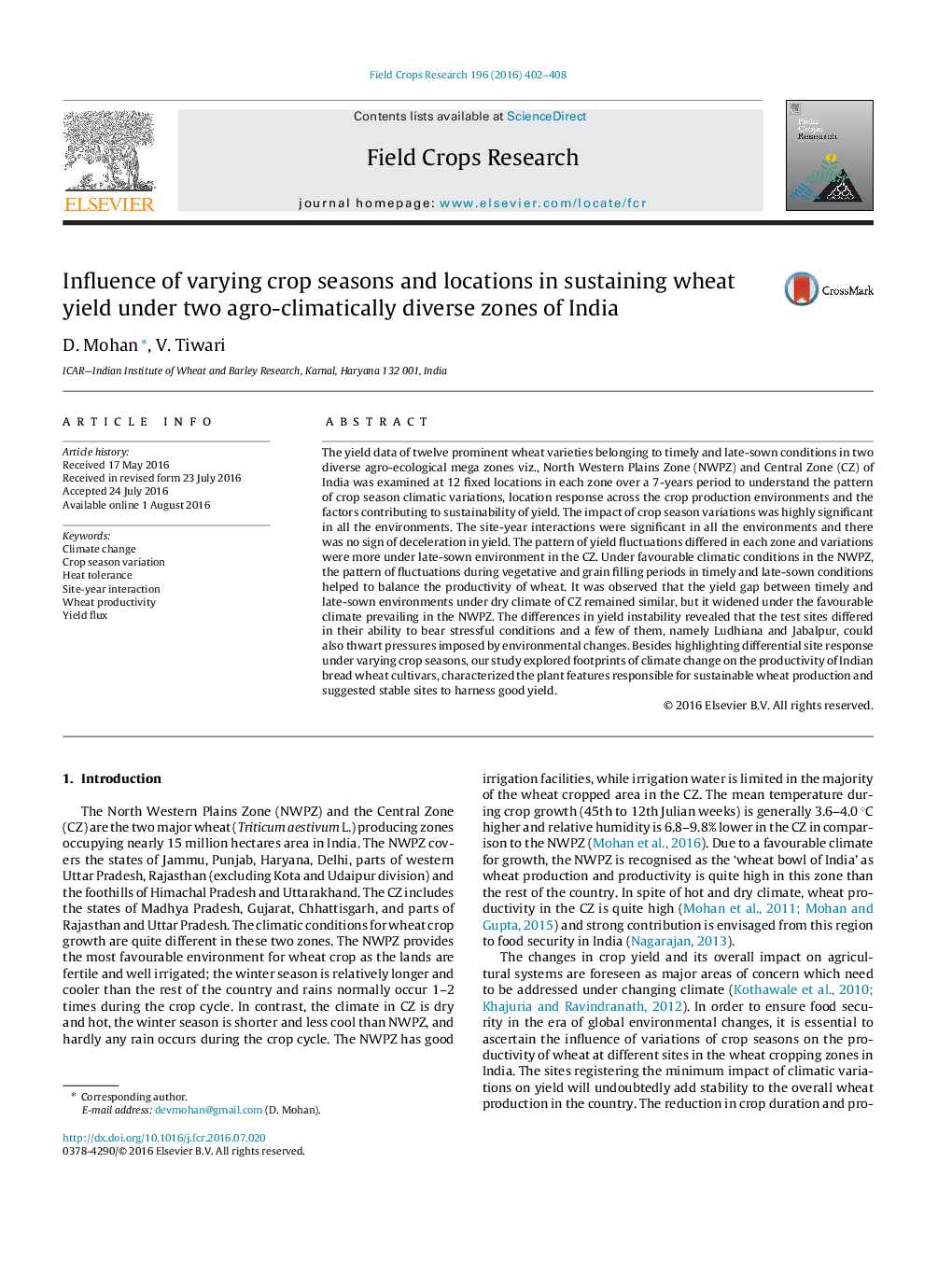| Article ID | Journal | Published Year | Pages | File Type |
|---|---|---|---|---|
| 6374567 | Field Crops Research | 2016 | 7 Pages |
Abstract
The yield data of twelve prominent wheat varieties belonging to timely and late-sown conditions in two diverse agro-ecological mega zones viz., North Western Plains Zone (NWPZ) and Central Zone (CZ) of India was examined at 12 fixed locations in each zone over a 7-years period to understand the pattern of crop season climatic variations, location response across the crop production environments and the factors contributing to sustainability of yield. The impact of crop season variations was highly significant in all the environments. The site-year interactions were significant in all the environments and there was no sign of deceleration in yield. The pattern of yield fluctuations differed in each zone and variations were more under late-sown environment in the CZ. Under favourable climatic conditions in the NWPZ, the pattern of fluctuations during vegetative and grain filling periods in timely and late-sown conditions helped to balance the productivity of wheat. It was observed that the yield gap between timely and late-sown environments under dry climate of CZ remained similar, but it widened under the favourable climate prevailing in the NWPZ. The differences in yield instability revealed that the test sites differed in their ability to bear stressful conditions and a few of them, namely Ludhiana and Jabalpur, could also thwart pressures imposed by environmental changes. Besides highlighting differential site response under varying crop seasons, our study explored footprints of climate change on the productivity of Indian bread wheat cultivars, characterized the plant features responsible for sustainable wheat production and suggested stable sites to harness good yield.
Related Topics
Life Sciences
Agricultural and Biological Sciences
Agronomy and Crop Science
Authors
D. Mohan, V. Tiwari,
